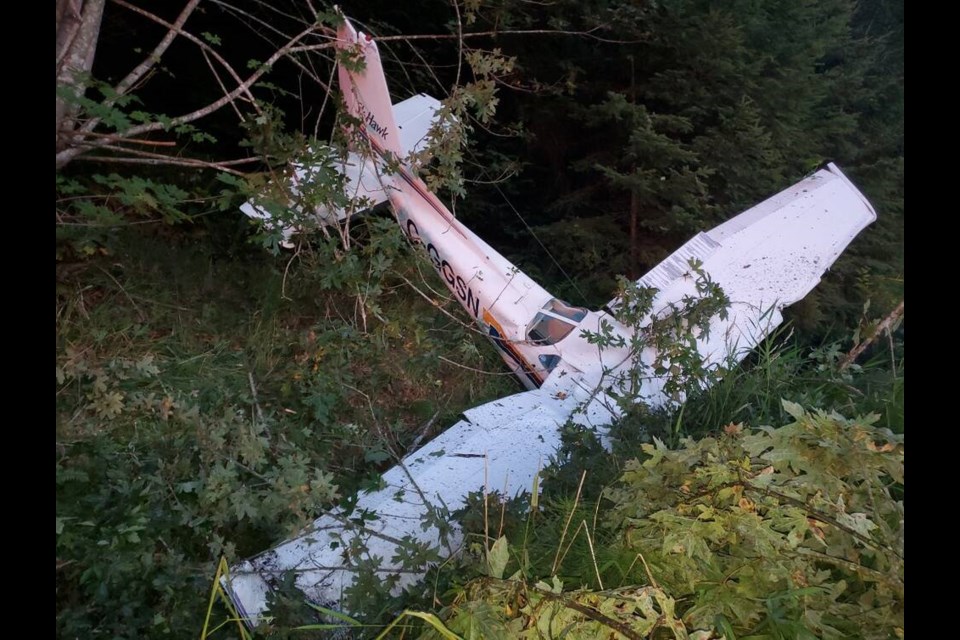A Cessna 172P aircraft that crashed near Qualicum Beach Airport on July 24, 2022, seriously injuring the pilot and lone occupant, had damage consistent with the engine producing low power or not operating on impact, the Transportation Safety Board says.
Friends identified Akhilesh Shere as the pilot, and said at the time that he was expected to make a good recovery.
In a report released Thursday, the TSB said the aircraft went down at the edge of a farmer’s field during a recreational flight that began at Victoria International Airport.
It came to rest in a water-filled ditch that is part of the neighbouring French Creek watershed, and released oil and fuel — resulting in extensive environmental work, including removal of contaminated water and soil.
During the approach to Qualicum Beach Airport, the plane’s engine began to sputter and decrease in speed, the report said, and did not respond when Shere increased the throttle.
“The pilot initiated a left turn, reduced throttle, added full flaps, and entered a forward slip in a steep descent,” it said.
The plane briefly touched a runway before getting airborne again.
“Approximately 19 seconds after the initial touchdown, the pilot initiated a steep right turn immediately before reaching tree-covered, down-sloping terrain, and the aircraft began a rapid descent in a right bank and nose-down attitude.”
Shere, who had reported that the engine was running roughly, declared a mayday before the aircraft hit the trees, the report said
It said an air ambulance took Shere to hospital, and the aircraft was “substantially” damaged.
An inspection of the plane’s engine found that it had minor impact damage but its overall condition was unremarkable.
Based on the conditions at the time, the report found there was a potential for serious carburetor icing at descent.
“Even though the investigation was unable to determine if carburetor icing was a factor in this occurrence, pilots are reminded that carburetor icing can occur even in warm temperatures,” the report said.



